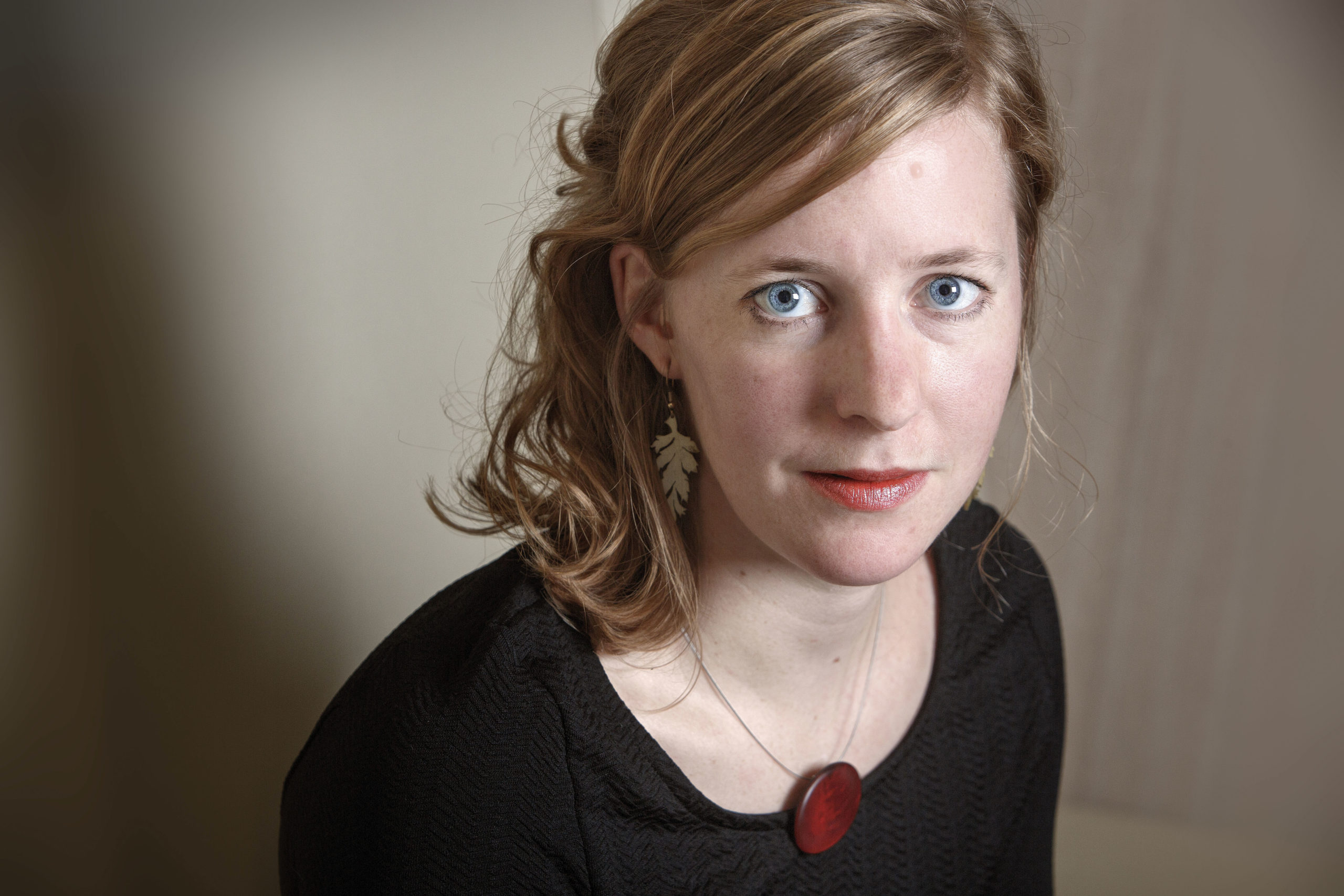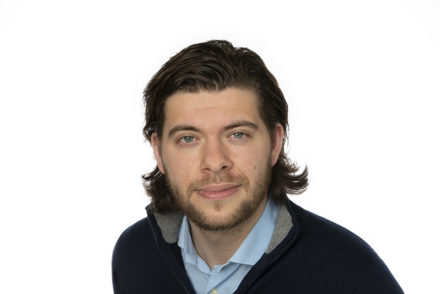‘Preventing the return of jihadists will not make Europe safer’
The world has declared victory in the war against the Islamic State, but the battle over how to bring its fighters to justice has only just begun. Marloes van Noorloos, associate professor at Tilburg Law School, weighs in on one of the most complex legal debates the international community faces today.
At the heart of the debate is the question of what to do with the Islamic State’s so-called “foreign fighters”, who traveled to Syria and Iraq from outside the Middle East to join the extremist group. Should they be allowed to return home for trial, or should they be prosecuted and punished in the region where they committed their crimes?
There is no easy answer to that question, says associate professor of criminal law Marloes van Noorloos. “It’s a legally complex and politically sensitive matter. European countries are reluctant to take back ‘their’ jihadists, but other options to bring IS suspects to justice are difficult or perhaps even impossible to realize,” she explains.
Detained in overcrowding prisons
At the height of its power, the Islamic State had an estimated 40,000 foreign fighters from countries all over the world—including Europe. As the war drove masses of Syrians onto rubber boats in an attempt to make the dangerous crossing to Europe, a wave of radicalized recruits traveled in the opposite direction. They burnt their European passports, renounced their ties to the West, and pledged loyalty to the Islamic State and its self-proclaimed caliphate.
That was then. Today, the once-sprawling caliphate is gone and most of its remaining militants have been captured. While thousands of foreign fighters are being held in Syrian and Iraqi prisons and overcrowding Kurdish detention camps—often making desperate pleas to be allowed to return home for prosecution—a new struggle has broken out over how to deal with them and their families.
Death sentences
Iraq has offered to try all foreign fighters in Baghdad, reportedly in exchange for monetary compensation. The country already handed down death sentences to a number of French nationals in swift trials in recent months, leading to the criticism that Europe is “outsourcing” IS-related prosecutions to Iraqi courts.
Human rights organizations have expressed concerns over violations of suspects’ right to a fair trial. Marloes van Noorloos shares those concerns. “In the criminal cases that are carried out against suspected IS members in Iraq, we’ve seen that trials are swift, the punishment can be death, and a lot of minors are tried like this. That is worrisome.”

Under the laws of many European states, citizens who have joined the Islamic State or other jihadist organizations can be prosecuted by domestic authorities in domestic courts. “It’s not necessary, and not desirable, to leave prosecution to Iraqi courts if a fair trial cannot be ensured and death sentences are handed down.”
Dutch jihadists
Like other European countries, the Netherlands has made no secret of its reluctance to repatriate nationals who traveled to IS territory. According to the General Intelligence and Security Service of the Netherlands (AIVD), around 125 Dutch men and women with “jihadist intentions” are currently still in Syria and Iraq. On its website, the AIVD states that these radicalized nationals could pose a threat upon returning home.
“The fear exists that returnees still hold extremist ideas”
“That’s one of the main reasons why governments prefer to keep IS suspects overseas—to protect national security,” Van Noorloos says. “The fear exists that returnees will still hold extremist ideas, or perhaps even plot an attack, when they are released into society after serving a few years in prison.”
False sense of security
It’s a mistake, however, to think that we are safer if former IS members are kept from our borders, Van Noorloos argues. “Preventing the return of radicalized citizens only creates a false sense of security. If these individuals are indeed intent on doing harm, who is to say that they will not enter the country illegally to carry out an attack?”
When it comes to protecting ourselves from extremism, perhaps it’s best to keep our friends close but our enemies closer. “If former IS members are allowed to return, they can be monitored and rehabilitated through deradicalization programs. That would not eliminate all risks of terrorist attacks, of course, but it would be a much more effective and controlled way to manage those risks.”
“Preventing the return of radicalized citizens only creates a false sense of security”
And there is another security reason for repatriating foreign fighters instead of keeping them out, Van Noorloos adds. “We tend to focus on the security and safety implications for our own citizens, but we should also consider the risks for citizens in Syria and Iraq. By leaving potentially dangerous radicals in the Middle East, we’re not just creating a false sense of security for ourselves—we’re also creating real security threats for others. That’s another important reason why European countries should take responsibility for their own citizens.”
International tribunal
So what can be done about foreign fighters if European countries are unwilling to repatriate them, while leaving them in the region is not a solution either? Van Noorloos: “There are other options to pursue criminal justice, which do not require repatriation but do meet internationally accepted legal standards and due process guarantees.”
One of those options is the establishment of an international ad hoc tribunal for IS fighters, such as those established in Yugoslavia and Rwanda. Along with Sweden, the Netherlands has been an outspoken advocate for such a tribunal based in Iraq or Syria. “Perhaps the greatest advantage of a tribunal in the region is that it would allow victims of IS atrocities to see justice being done,” Van Noorloos says. “However, setting up an ad hoc tribunal is extremely complex and time-consuming. It could take years before the court is able to hear the first cases.”
What about Assad and Putin?
A more important argument against an ad hoc IS tribunal, Van Noorloos says, is that it would leave atrocities committed by the Syrian regime and its allies out of the picture. “That is problematic. Jihadis committed many grave crimes in Syria and Iraq, but they are not the only perpetrator in this war.”
“The Islamic State is not the only perpetrator in this war”
Van Noorloos stresses that all individuals and groups suspected of war crimes and crimes against humanity—such as the killing of civilians—must be held accountable. “The Syrian and Russian authorities have bombed schools, hospitals and other civilian targets in systemic aerial attacks that caused far more deaths than IS did. If justice is to be done, the Syrian government and its associates cannot get a pass.”
The Hague
In seeking justice for the victims of Syria’s civil war, there is another strong option to consider: prosecution before the International Criminal Court (ICC) in The Hague. “The ICC hears cases involving genocide, crimes against humanity and war crimes. It allows for the independent investigation and prosecution of the most severe crimes under international law—not just those committed by the Islamic State, but by all actors in the Syrian civil war.”

Unfortunately, the chances that suspected perpetrators of atrocities will actually be brought before the ICC are very slim. “Because Syria and Iraq have never ratified the Rome Statute, the treaty that established the International Criminal Court, the ICC has no independent authority to investigate or prosecute crimes that took place in those countries if the suspects are not nationals of a State Party, such as the Netherlands,” Van Noorloos explains.
“Prosecution by the ICC can only occur if the Security Council refers the situation in Syria to the ICC. But a referral by the Security Council is very unlikely, since Russia holds veto power. Russia, and perhaps other members of the Security Council, will block any tribunal that investigates the anti-IS coalition.”
Big fish, little fish
In the context of Syria’s civil war, what constitutes “justice” and how it should be achieved is not easily agreed upon. Although it’s an unlikely scenario, Marloes van Noorloos is most in favor of a collaboration between national courts and the International Criminal Court.
“The ICC could target ‘big fish’ suspected of war crimes and crimes against humanity, while lower-ranked combatants are tried by courts in their home countries,” she says. “I believe that would be the best way to bring justice to the victims of this long and complicated war.”






